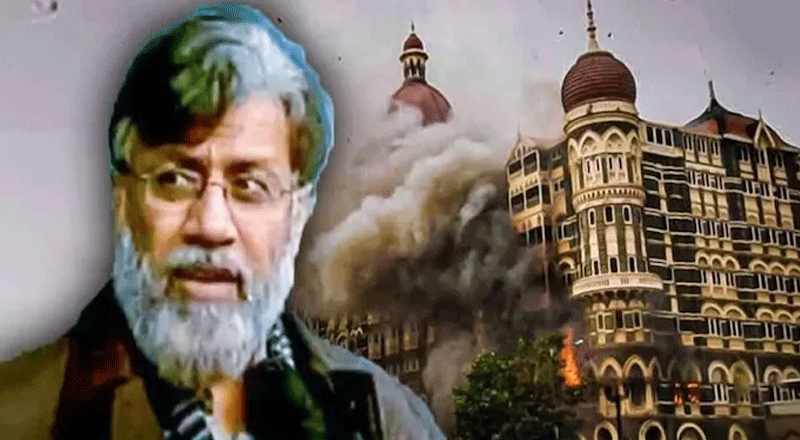
US Approves Tahawwur Rana's Extradition: A Step Toward Justice for 26/11 Victims
A Landmark Decision in the Fight Against Terrorism In a major diplomatic victory for India, the United States has approved the extradition of Tahawwur Rana, a key conspirator in the 2008 Mumbai terror attacks. President Donald Trump announced the decision during a joint press conference with Indian Prime Minister Narendra Modi, calling Rana "one of the very evil people of the world." This move signals stronger cooperation between India and the US in counterterrorism efforts while putting renewed pressure on Pakistan, which continues to deny its role in sheltering and supporting terror networks. The 26/11 attacks, which lasted for nearly 60 hours and left 166 people dead, were carried out by members of the Pakistan-based terrorist group Lashkar-e-Taiba. Despite overwhelming evidence linking the attackers to Pakistan, its government has consistently denied involvement and failed to bring the masterminds to justice. Tahawwur Rana: A Key Player in the 26/11 Attacks Tahawwur Rana, a Canadian citizen of Pakistani origin, was a close associate of Pakistani-American terrorist David Coleman Headley, one of the primary conspirators behind the Mumbai attacks. Rana played a crucial role in providing logistical support for the attacks, which targeted Mumbai's Taj Hotel, Oberoi Trident Hotel, Chhatrapati Shivaji Terminus, and the Jewish center Nariman House. Rana was arrested in the US and had been fighting extradition to India. However, after the US Supreme Court rejected his review petition, his return to India became imminent. Modi, expressing gratitude to Trump, stated, “I am thankful to the president for extraditing a criminal who committed genocide in 2008 in India.” Pakistan’s Role: A History of Harbouring Terrorists Pakistan has long been accused of providing safe havens for terrorists, including Lashkar-e-Taiba, Jaish-e-Mohammad, and other extremist groups that have targeted India. While the Pakistani government continues to deny any role in the Mumbai attacks, evidence, including intelligence intercepts and captured terrorist Ajmal Kasab’s confession, points directly to Pakistani involvement. India has repeatedly urged Pakistan to prosecute those responsible for 26/11, but progress has been minimal. The primary accused, including Lashkar-e-Taiba founder Hafiz Saeed and operations commander Zakiur Rehman Lakhvi, continue to operate freely despite international pressure. The US and India’s joint statement reiterated the need for Pakistan to ensure that its territory is not used for cross-border terrorism and to bring the perpetrators of the Mumbai and Pathankot attacks to justice. Pakistan’s Response: Denial and Diplomatic Protests Following Trump and Modi’s strong remarks, Pakistan reacted defensively, calling the Indo-US joint statement “one-sided and misleading.” Islamabad has frequently dismissed evidence of its complicity in terror attacks, portraying itself as a victim rather than a state sponsor of terrorism. However, global scrutiny has been mounting. Pakistan remains under observation by the Financial Action Task Force (FATF) for failing to curb terrorist financing. Despite occasional arrests of terror leaders under international pressure, many of these actions are seen as temporary measures to avoid sanctions rather than genuine efforts to dismantle terrorist networks. Implications for US-India-Pakistan Relations Rana’s extradition marks a significant step in India-US counterterrorism cooperation and further isolates Pakistan on the global stage. Some key takeaways include:
- Strengthened Indo-US Ties: The extradition reflects growing trust and collaboration between India and the US in security matters.
- Pressure on Pakistan: The US has signaled its commitment to holding terror sponsors accountable, increasing diplomatic heat on Pakistan.
- Potential Future Extraditions: Trump hinted that more extraditions of terror suspects could follow, signaling a tougher stance on cross-border terrorism.










